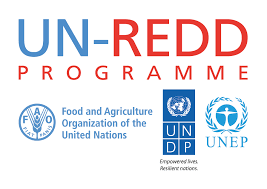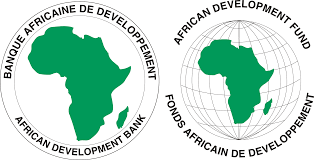The DRC, with its 1.55 million square kilometres of forests, accounts for more than half of Africa's forest resources. They are the second largest carbon sink of tropical forests in the world and therefore provide crucial services to the biosphere. After posting relatively low deforestation rates during the period 2000-2010 (the Reference Level, NERF, submitted to the UNFCCC in 2018 speaks of 0.44% for this period), the country has experienced a sharp increase in deforestation in recent years. According to the current analysis of data, this rate would have reached 1.25% for the 2010-2014 period. A total of 7,528,028.31 ha 13 million hectares of forest would have been lost over the period 2000-2014, i.e. nearly 0.5 million hectares per year.
Deforestation and forest degradation on such a scale (although DRC's NERF was unable to assess degradation, it will be included in a future submission) would more than double DRC's current carbon emissions to between 390 and 410 million tonnes. Aware of these stakes linked to the poverty of its population and the imperatives of socio-economic development, and considering the local, national and global importance of its forests, the Democratic Republic of Congo (DRC) has been engaged in the process of Reducing Emissions from Deforestation and Forest Degradation (REDD+) since 2009.
The Government validated the National REDD+ Framework Strategy in November 2012. The REDD+ Strategy promotes sustainable land management and use in order to fight in an integrated manner against the various drivers of deforestation and stabilize forest cover, while ensuring economic growth, increasing the populations' income and improving their living conditions, particularly those of the poorest and most vulnerable. With its seven pillars, the REDD strategy has been operationally translated into a REDD+ Investment Plan that sets the programmatic framework. This Investment Plan was validated in September 2013, then updated in 2015 to cover the 2016-2020 period. On April 22, 2016, the Government of the DRC signed a Letter of Intent (LOI) with the Central African Forest Initiative (CAFI) in which CAFI committed to finance up to USD 200 million for the REDD+ Investment Plan over 2016-2020, including USD 190 million through the National REDD+ Fund (FONAREDD). This allocation is made available in two tranches for the programming of the National REDD+ Fund, a first tranche of USD 120 million and a second tranche of USD 80 million subject to independent verification of the achievement of intermediate milestones.
This REDD process should notably help resolve certain governance problems in the forest sector. Indeed, according to the report of the Trust Fund for Strengthening Forest Sector Governance (2005), the DRC's forest sector suffers from a number of significant governance deficits, including the following:
- A lack of forest monitoring capacity, ‘on the ground’ ;
- A non-transparent system for allocating logging titles because, despite the moratorium in the allocation of logging titles that is in place ;
- Difficulty in detecting and sanctioning infractions even in the presence of reduced logging compared to the potential ;
- Non-transparent taxation (‘parallel fiscality’ and ‘hassles’) and ineffective collection ;
- Non-transparent transfers of funds from the central administration to the ETDs ;
- Insufficient level of stakeholder consultation in the development of the legislative/regulatory framework, allocation of concessions and (in the future) use of funds from the return of part of the forest revenues to the ETDs for community investments ;
- A lack of transparency in terms of information on the use of funds specific to the forestry sector (reforestation funds, future restitution of part of the forest tax revenues).
Avocats verts in partnership with UNEP (2011) in their report on gap analysis and guiding principles for REDD+ revealed some important observations including the lack of a specific regulation on REDD+; the lack of an efficient and effective institutional framework; the lack of a law on the status of land; and also the lack of the aspects of free informed and prior consent of communities in the REDD+ process. The same report indicated that the Government has also made efforts to improve the governance framework in the forest sector through the legal title review process, the conversion of old forest titles into forest concessions, and the promulgation of the framework law on the environment.
In partnership with UNEP, Avocats verts (2011) in their report on gap analysis and guiding principles for REDD+ revealed some important observations including the lack of a specific regulation on REDD+; the lack of an efficient and effective institutional framework; the lack of a law on the status of land; but also the aspects of free, prior and informed consent of communities missing from the REDD+ process. The same report indicated that the Government has also made efforts to improve the governance framework in the forest sector through the legal title review process, the conversion of old forest titles into forest concessions, and the promulgation of the framework law on the environment. The willingness to adopt a Climate Plan and the ongoing discussions between the DRC government and the European Commission to formalize the EU's Voluntary Partnership Agreement (VPA) on Forest Law Enforcement, Governance and Trade (FLEGT). To date, the DRC benefits from a decree approving REDD+ investments, which should be improved, integrating social and environmental standards; and a decree on FPIC.
A report commissioned by IUCN / CARPE (2013) on the forest governance framework in the DRC also states that the country's forest legislation includes provisions favorable to good governance, particularly with regard to community access to forest resources, and also the existence of opportunities for stakeholders to raise concerns about the forest administration and its management of forests. On the other hand, with regard to law enforcement, the report negatively assesses several points including, among others, the following three (3) aspects which received very low scores and therefore require significant improvements: i) Public information by the authorities indicating that the authorities rarely, if ever, announce policy, programme, legislation and project proposals in a clear and timely manner. (ii) Transparency in forest procurement, indicating that forest procurement systems are never open or transparent; (iii) Evaluation of forest officials. There is no regular evaluation of the performance of forestry personnel in the Ministry in charge of forests.
A Greenpeace report (2019) shows that since January 2019, more than 20 industrial forest concession contracts in the Democratic Republic of Congo (DRC), covering more than 4 million hectares, have not obtained approval of their management plan within the legal timeframe, or have never filed a management plan but continue to operate peacefully. Indeed, experience shows that it is not enough to have relevant laws, codes and regulations to ensure that they are respected at the different levels of administration as well as by private actors. A great deal of work of explanation, involvement and mobilization must be done at the national level in particular, especially in the unstable political context characterized by a high level of administrative renewal, in order to encourage better application of the law, particularly with regard to the international commitments made by the country in general.
The Government must be held accountable for the fulfilment of the commitments made and to take corrective action if contrary measures had been taken. One of the strongest tools against non-compliance is large-scale communication. REDD messages have little resonance at the national and provincial levels. They are limited to discourse that is often poor in information and factual communication. One of the reasons lies in the weak capacities of the national media, their weak relationship to the field and to the projects.
It is therefore important, while this REDD process has made its way, to objectively analyze the general governance framework of the process in order to detect weaknesses that can be transformed into opportunities and thus sustainably support the process for the benefit of local communities and the country. It is in this context that the national chapter of GLOBE DRC would like to update the governance framework of the forest sector in the DRC in order to analyze and define the political reforms to be introduced to support the national REDD+ process, supported by ongoing studies on the analysis of the legal and institutional implementation framework.








